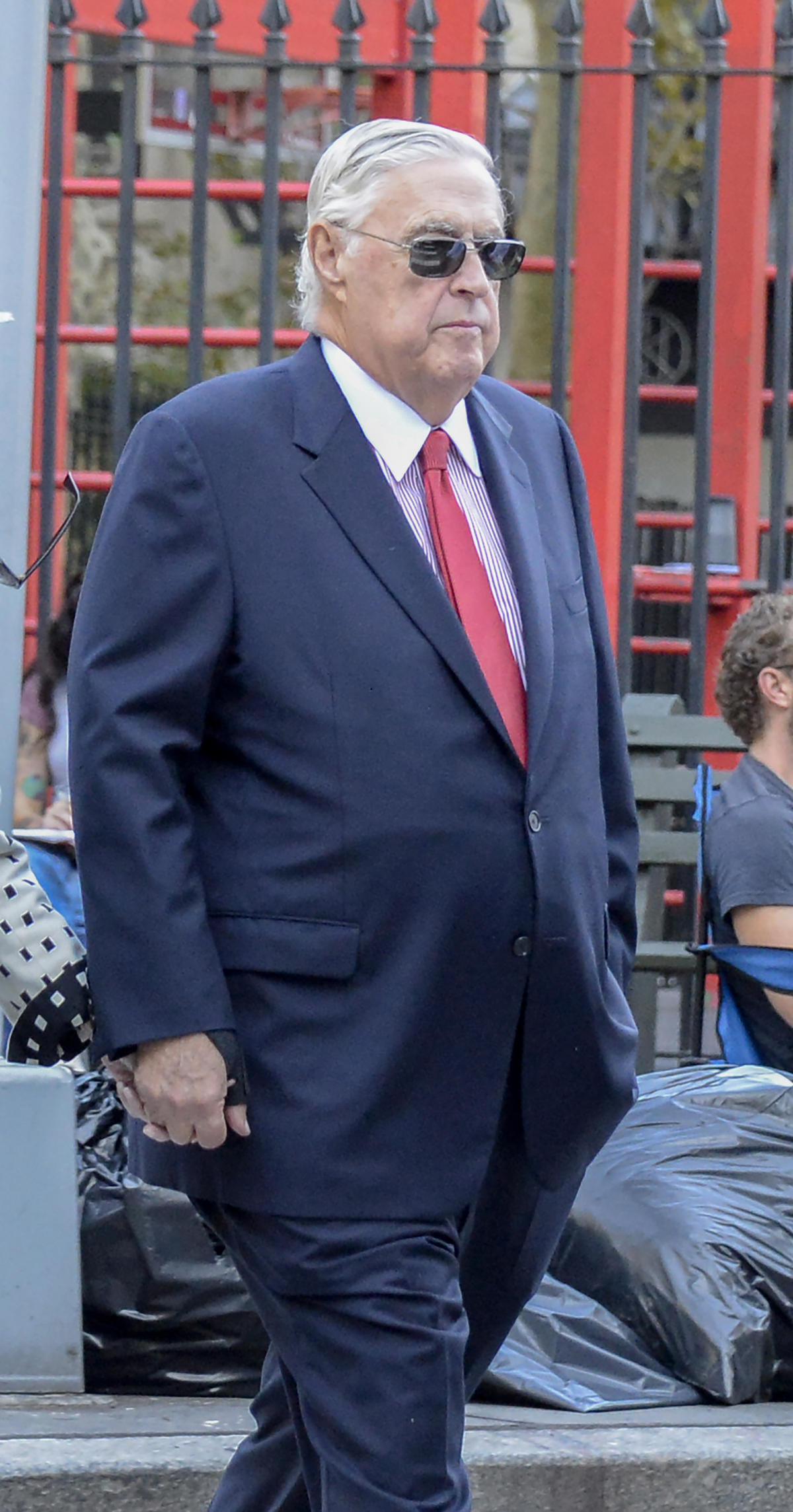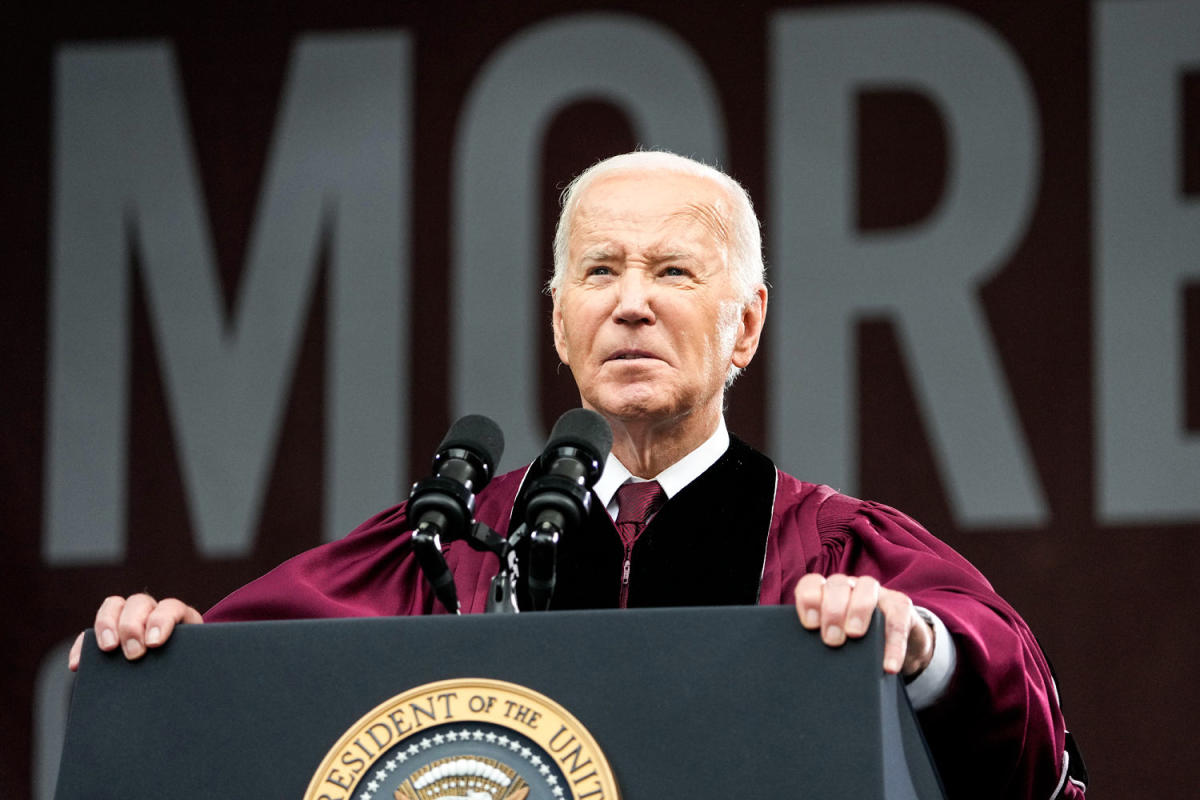Donald Trump doesn’t change. Judges do.
Two weeks ago, a New York judge, Arthur Engoron, permitted Trump to personally deliver a closing argument in his civil fraud trial as long as he stuck to the facts and avoided a courtroom “campaign speech.” Trump bulldozed through the restrictions, repeated his familiar claim of a “political witch hunt” and assailed the judge to his face.
Then last week, after a lawyer down the street at the E. Jean Carroll defamation trial complained that Trump was grumbling “con job” and “witch hunt” loud enough for jurors to hear, Judge Lewis Kaplan sternly warned him that, although he had the right to be present, “that right can be forfeited — and it can be forfeited if he is disruptive.”
Sign up for The Morning newsletter from the New York Times
Carroll’s lawyers did not find reason to complain again.
The judges’ different approaches to the tempestuous storm that entered their courtrooms — and the different results — could offer lessons beyond the two New York cases. They may provide guidance for the judges set to oversee Trump’s four potential criminal trials, who will want to keep the 45th president from transforming his legal proceedings into political spectacles.
“The thing you’ve got to do primarily is set rules and enforce them,” said John S. Martin Jr., a former U.S. District Court judge in Manhattan. “I think if the judge is tough and doesn’t back down, Trump will back down.”
Trump, 77, often finds himself in courtrooms these days, alternating those appearances with campaign stops — and using both for political purposes as he seeks the Republican presidential nomination. On Tuesday, after attending jury selection in Carroll’s case, he flew to New Hampshire to begin campaigning. He then returned to court Wednesday, when she testified, before heading back to New Hampshire.
Judges regularly confront defendants who are powerful public figures, like politicians or CEOs, who are used to dominating a room.
But judges, particularly those in federal court who enjoy lifetime tenure, do not easily surrender their authority. Typically, threats of financial sanctions, contempt or even short jail sentences can calm the most unruly of courtroom disrupters.
What has made Trump’s appearances challenging is that he may be making the calculation that disobeying a judge or perhaps even losing a legal argument could be politically advantageous. In Carroll’s defamation trial, Trump seemed almost to be goading Kaplan into throwing him out of the courtroom.
After his two recent confrontations with the judges, Trump held news conferences in front of cheering supporters in the lobby of his building at 40 Wall St. Standing before a row of American flags, he repeated his themes of personal persecution. He called the state attorney general, Letitia James, who had sued him in the civil fraud case, “deranged” and “a political hack.” A week later, he labeled Kaplan “a Trump-hating guy,” and brushed aside Carroll’s claims. “I, frankly, am the one that suffered damages,” he said.
Both of Trump’s Manhattan trials are still pending. There is no jury in James’ civil fraud case in New York Supreme Court; Engoron’s ruling on whether Trump and his company are liable for a $370 million penalty being sought by the state is expected toward the end of this month.
Carroll’s defamation trial is being heard by a nine-person jury in U.S. District Court, with Kaplan overseeing the proceedings. The only issue is how much money, if any, Trump must pay Carroll, 80, for defaming her after she accused him in 2019 of sexually abusing her decades before, and for his persistent attacks in statements and social media. Testimony is expected to continue through at least Monday, when Trump has indicated he might testify.
Kaplan, 79, was appointed to the federal bench by President Bill Clinton in 1994. He is known for his command of the courtroom and, at times, his impatience with lawyers who seem to be unprepared. He has presided over trials involving such boldface-name defendants as Sam Bankman-Fried, the tousle-haired cryptocurrency mogul convicted in November, and Sulaiman Abu Ghaith, a son-in-law and adviser to Osama bin Laden whom the judge sentenced to life in 2014.
The judge also presided last spring in a previous case that Carroll brought against Trump. In that trial, a jury awarded her $5 million in damages after finding him liable for sexually abusing her in the 1990s and defaming her in a different statement than those that prompted the current case before Kaplan.
“This is not his first rodeo,” said Katherine B. Forrest, a former colleague of Kaplan’s on the Manhattan federal bench. “He is going to be quite careful and thoughtful about how he handles this situation.”
“I’m sure he’s thinking about when he draws lines, how he draws lines, what the lines mean and what agenda it plays into,” Forrest added.
Kaplan already ruled Trump and his lawyers may not contest the jury’s finding in May that Trump sexually abused Carroll or that his statements about her were defamatory.
But if Trump is again disruptive or even removed from the courtroom, the trial should be able to continue, said Michael B. Mukasey, who was a Manhattan federal judge for nearly two decades. Mukasey said Kaplan would have an obligation to ensure the jury is not influenced by any extraneous matter.
“He would want to make sure that they understand that neither Trump’s antics, nor whatever results from them, is evidence,” Mukasey said, “because they take an oath to decide the case based only on the evidence and his instructions on the law.”
In the state court, Engoron, 74, also has long experience. A former cabdriver and aspiring musician, he makes frequent jokes from the bench and maintains a cordiality with lawyers and witnesses alike.
He is a character outside the courtroom too — he once submitted a story to The New York Times about approaching singer Art Garfunkel, informing him “My name’s Art, too” — and subsequently being mocked by a friend.
But Trump and his lawyers have appeared to test Engoron’s good humor as the judge seeks to determine whether the former president is liable for violating state laws by inflating his net worth, as James, the attorney general, has argued.
When one of Trump’s lawyers, Christopher Kise, said that the former president wanted to speak during closing arguments this month, Engoron said he would permit that as long as Trump agreed to the conditions that bind any lawyer: to stick to the facts and the law.
The former president did not agree to do so. In open court, Kise renewed his request, prompting a sigh from Engoron. “This is not how it should have been done,” he said.
Still, he let Trump speak, and the former president used his five minutes to attack James and the judge.
One condition Engoron set, however, appeared to be effective: He told Trump that if he attacked the judge’s staff members — violating a gag order — he would be removed from the courtroom and fined at least $50,000.
During his diatribe, Trump refrained from attacking any staff members.
c.2024 The New York Times Company

Amanda Smith is a dedicated U.S. correspondent with a passion for uncovering the stories that shape the nation. With a background in political science, she provides in-depth analysis and insightful commentary on domestic affairs, ensuring readers are well-informed about the latest developments across the United States.







